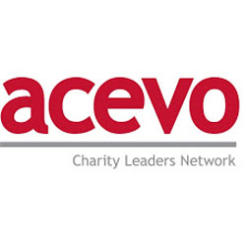Calls to Acevo’s ‘CEO in Crisis’ helpline increased by 40 per cent in the year to March 2013, with most problems stemming from poor governance, according to Acevo’s 2013 annual report and accounts.
And Acevo’s membership dipped by 14 per cent over the year but only 1 per cent of those leavers that notified their reason for leaving said it was because they were critical of the organisation.
The report states that the fall in membership - from 1,749 to 1,520 - “reflects both the changes to our sector and the pressures our members are experiencing. Those CEOs who left Acevo membership did so for a variety of reasons, such as moving on from their roles, retiring, or in some cases their organisations going out of business.
“Of those who notified us of their reason, 1 per cent left because they were critical of Acevo.”
Retention averaged 65 per cent over the year against a target of 62 per cent.
The report said that demand for the CEO in Crisis helpline continued to rise, up by 40 per cent over the year. The service offers legal and emotional support if their employment is in a crisis situation.
“More often than not, the crisis has occurred due to poor governance, so we are continuing to promote our governance helpline and governance review service to try and prevent more crisis situations occurring.”
Income down slightly but break-even overall
The umbrella body’s income dropped slightly, from ££2.14m to £1.99m but it managed to turn last year’s £169,000 deficit into a £640 surplus.
Turnover at the trading subsidiary Acevo Solutions grew from £327,370 to £436,644 and a sharp focus on costs meant that its profit increased by 800 per cent, from £34,197 to £271,680 – all of which will be paid to Acevo under gift aid.
The strategic grant from the Office for Civil Society shrank from £415,000 in 2012 to £311,250, and will diminish further next year. But Acevo was able to grow its revenues from sponsorship, affinity scheme and trading.
It trimmed its staff numbers over the year from 26.7 full-time equivalents to 18.7, enabling it to reduce staffing costs from £1.17m to just over £908,000.
The level of free reserves at the year-end was £559,263, described by Acevo as “prudent”. It said it planned to spend some of these reserves this year on a new website and CRM system to better serve its members.
Several of Acevo’s existing multi-year grants will expire in the current financial year. These include the OCS Structural Reform Grant, which Acevo shared with Navca to offer support to charities entering consortia; Inspiring Impact; OCS Masterclasses, which aimed to help charities win contracts; and the OCS Contract Cruncher.
This latter project provided £70,000 to Acevo to build a new software tool to enable voluntary groups to understand and evaluate payment-by-results contracts under the Ministry of Justice’s probation reforms.
- Governance magazine helps chief executives and trustee boards to achieve good governance within their charities. Click here to buy a subscription for your trustee board.









